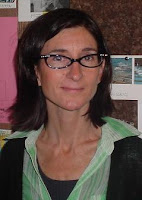In a unique initiative, Chapman University will partner with
Clark University in Worcester, Mass. to create a new graduate fellowship in Holocaust history, the two universities announced.
Daniele Struppa, Ph.D., chancellor of Chapman University, said, "This initiative demonstrates what is possible when faculty and administrators at two universities, located on opposite coasts, think in new was about what will benefit students at their institutions, and then invest the energy and creativity to move from vision to reality."
The fellowship will send one graduate student from Clark University's Strassler Center - which offers the nation's sole doctorate in Holocaust studies - to study and teach at Chapman University's Rodgers Center, which focuses on teaching undergraduates. The initial fellowship will begin in fall semester 2011 and run through spring semester 2013. The selected fellow will serve in-residence at Chapman's Rodgers Center, one of only a very few Holocaust education centers in the United States located in and supported by a private university.
"This announcement brings to fruition what began as the shared dream of my colleague Deborah Dwork at Clark University and me," said Dr. Harran of the Rodgers Center. "We envisioned a fellowship program that would benefit each of our institutions, introducing new perspectives and research to our Chapman undergraduate history program while offering an outstanding junior scholar from Clark the opportunity to gain teaching experience. I am proud that Chapman University and Clark University have forged this innovative and creative partnership."
Dr. Dwork of Clark's Strassler Center agreed: "The Chapman University Fellowship in Holocaust History is a cutting-edge academic initiative. I am as delighted as I am proud to join my colleague, Professor Marilyn Harran, and the whole Chapman community in this endeavor."
The selected fellow's responsibilities will include teaching one course in the area of Holocaust studies each semester, presenting one public lecture annually, mentoring and sharing their research with students minoring in Holocaust history and majoring in European history, as well as continuing research and potentially serving as a representative of the Rodgers Center at academic conferences and symposia.
















































